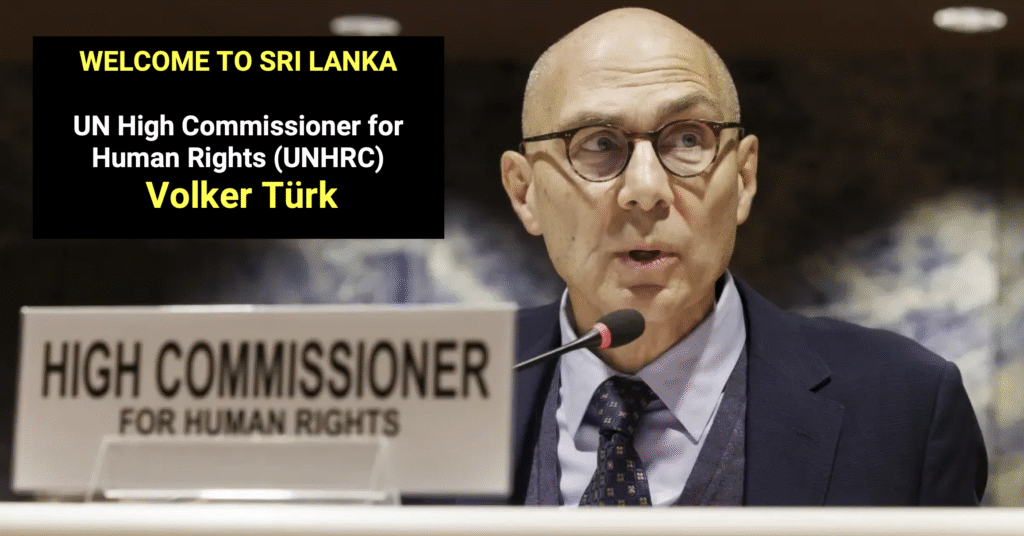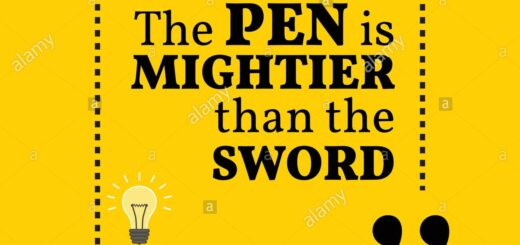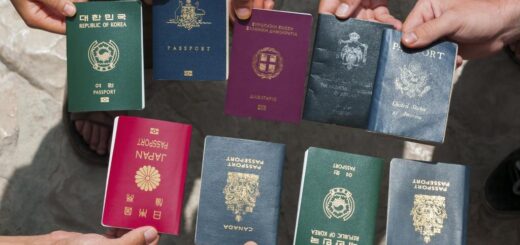Sri Lanka: 2009 Post-War to Present — UN Precedents, Bias & International Injustice

A Dangerous Precedent by UNSG Ban Ki-moon
The UN’s actions against Sri Lanka post-2009 remain unprecedented in UN history. Never before has the Secretary-General appointed a Panel of Experts (PoE) to investigate a concluded internal conflict—especially after a recognized terrorist group was defeated. UN Secretary-General Ban Ki-moon’s decision to appoint such a panel in 2010, bypassing both the UN General Assembly and UN Security Council, violated established UN procedures and set a dangerous precedent that undermines the sovereignty of UN member states.
Critique of UNSG Ban Ki-moon’s appointment of the PoE after a Concluded Conflict
1. Violation of Precedent and Neutrality
No Prior Case: Never before in UN history had a Secretary-General appointed a personal panel to investigate a concluded non-international armed conflict in a sovereign state that had defeated a designated terrorist group (LTTE).
- Ban Ki-moon created a dangerous precedent by initiating an accountability mechanism outside the UN Security Council or General Assembly.
- He acted unilaterally, using Articles 98 and 99, which are traditionally exercised in ongoing crises or active threats to peace—not post-conflict internal matters.
2. Misuse of Article 98 and Article 99
- Article 98 allows the Secretary-General to perform duties entrusted by the General Assembly, Security Council, or other UN bodies—yet no such directive was given to Ban Ki-moon regarding Sri Lanka.
- Article 99 empowers the Secretary-General to alert the Security Council if a situation threatens international peace.
Article 98(1) states: “The Secretary-General shall perform such other functions as are entrusted to him by the General Assembly, the Security Council, or the Economic and Social Council.”
Article 99 empowers the Secretary-General to “bring to the attention of the Security Council any matter which in his opinion may threaten the maintenance of international peace and security.”
By May 2009:
-
- The war had ended.
- The LTTE had been militarily defeated.
- Over 290,000 Tamil civilians were rescued and humanitarian efforts were underway.
In short – there was no ongoing threat to peace warranting Article 99’s invocation.
3. Political Motives over Legal Mandate
- The timing of the PoE’s creation in June 2010—one year after the war ended & one month after Sri Lanka launched its own accountability mechanism the LLRC —suggests the move was not to protect civilians but to appease diaspora lobbies, international NGOs, and Western diplomatic pressure.
- Ban Ki-moon did not appoint similar panels for:
- NATO’s bombing of Libya (2011)
- U.S. drone strikes in Pakistan, Yemen, Somalia
- Civilian deaths in Iraq, Syria, Afghanistan, or Yemen
- Why only Sri Lanka? This selective scrutiny exposes the politicization of accountability under his leadership.
4. Bypassing Member State Consent
- The PoE was not established through any UN resolution.
- It was not approved by:
- The General Assembly
- The Security Council
- The Human Rights Council
- Ban Ki-moon relied solely on a Joint Statement with President Rajapaksa on 23 May 2009, which contained no legal commitment to a UN investigation—only a broad pledge to domestic accountability.
Transforming a political statement into a quasi-legal mandate for a panel with no official UN status demonstrates executive overreach.
5. Undermining Sovereignty and Post-War Recovery
- Sri Lanka was engaged in:
- Resettling IDPs
- Demining former LTTE areas
- Rebuilding schools, hospitals, places of religious worship and roads
- Rehabilitating 12,000+ ex-LTTE cadres
- The PoE’s release in 2011 derailed these efforts by:
- Fueling international hostility
- Encouraging UNHRC resolutions (2012 onward)
- Reinforcing diaspora-funded propaganda
This hindered genuine reconciliation and reignited ethnic polarization—ironically undermining the very peace and accountability Ban Ki-moon claimed to promote.
6. Instrument of One-Sided Narrative
- The PoE explicitly stated it was not an investigation but an advisory mechanism—yet its findings were LEAKED & thereafter used to:
- Justify UNHRC country-specific resolutions
- Fuel foreign intervention demands
- Pressure Sri Lankan Govt to tweak its internal administrative systems including passing Acts.
- Label the Sri Lankan military as war criminals, while ignoring LTTE atrocities
By focusing exclusively on alleged violations by the state, the PoE whitewashed the LTTE’s decades of terror—suicide bombings, human shields, child soldiers, ethnic cleansing.
The appointment of the PoE by UNSG Ban Ki-moon was a highly irregular, politically driven decision that violated established norms, undermined Sri Lanka’s sovereignty, and set a dangerous precedent of selective justice.
Rather than fostering reconciliation or peace, it emboldened LTTE-linked propaganda, deepened international mistrust, and exposed the UN’s double standards when dealing with terrorism, sovereignty, and accountability.
The Panel of Experts: A Biased Construct
The three-member panel (Marzuki Darusman, Yasmin Sooka, and Steven Ratner) lacked both independence and objectivity. Their selection alone reveals deep flaws:
- Yasmin Sooka, a EU employee and Executive Director of the Foundation for Human Rights in South Africa, has drawn criticism for using the organization’s resources to support the International Truth and Justice Project (ITJP), which has published numerous reports alleging war crimes in Sri Lanka. Critics argue these reports rely heavily on anonymous or unverifiable sources, raising concerns about methodological rigor and neutrality.
- Steven Ratner: A former adviser to the U.S. State Department, with a clear Western geopolitical bias. His past work demonstrates preference for “responsibility to protect” (R2P) doctrines often used to justify interventions against states opposing Western hegemony.
- Marzuki Darusman: The panel’s lead, previously involved in politically contentious inquiries, including in North Korea and Indonesia, his reports have regularly drawn criticism for partiality.
The PoE report itself:
- Was not an official UN document (yet treated as such),
- Was not mandated by the UNGA or UNSC,
- Relied entirely on “credible allegations” rather than verified evidence,
- Did not follow due legal standards of evidence,
- Did not allow Sri Lanka a chance to rebut allegations before publication.
The PoE was a political instrument, not a judicial body.
Post-War Consultative Mechanisms Ignored
From 2006 until the end of the war, a Consultative Committee met fortnightly, with participation from:
- UN representatives,
- Diplomatic missions,
- INGOs and NGOs,
- Sri Lankan military and government officials.
These meetings allowed for immediate reporting and redress of any grievances. No major concerns were raised during these sessions. Yet, suddenly after May 2009, an avalanche of war crimes allegations surfaced—many pushed by LTTE diaspora fronts or those living overseas who had never been to Sri Lanka.
This post-war shift suggests a deliberate, politically motivated campaign, exploiting humanitarian concerns for geopolitical gain.
UN’s Hypocrisy: Silence on LTTE Crimes
Despite decades of LTTE atrocities—including:
- Over 300 suicide bombings,
- Use of child soldiers (estimated 30% of cadres),
- Targeted assassinations (including Rajiv Gandhi, Sri Lankan leaders, Tamil dissenters),
- Ethnic cleansing of Sinhalese and Muslims from the North,
- Attacks on religious places and transport hubs,
- In fact today, 11 June in 1990 LTTE killed over 600 policemen across police stations in the Eastern Province.
—the UN never officially designated the LTTE as a terrorist organization.
Why?
- Was it because Western donors used the LTTE as a bargaining tool in the region?
- Was it geopolitical strategy to destabilize a non-aligned nation?
- Was it due to diaspora lobbying in powerful UN member states?
Contrast with UN action on other Terrorist Groups
The UN’s treatment of the LTTE stands in sharp contrast to how it dealt with:
| Group | UN Action |
| Al-Qaeda/Taliban | UNSC Resolutions (1267, 1373), sanctions, military authorization |
| ISIS/Daesh | Global coalition, sanctions, UN resolutions, criminal tribunals |
| Boko Haram | UNSC sanctions, condemnations, multilateral military response |
| Hezbollah (by some states) | Designation, arms embargoes, regional monitoring |
Yet the LTTE:
- Was never condemned by the UNSC inspite of over 30 years of terror
- Faced no global sanctions,
- Maintained international fundraising networks with impunity,
- Its operatives were living in western capitals & openly carrying out propaganda campaigns with foreign politicians even attending them.
- Enjoyed media, legal, and diplomatic backing in Western states.
This raises a serious question of double standards.
Why the Targeting of Sri Lanka?
Post-war Sri Lanka faced:
- UNHRC Resolutions (2012–present) disproportionately blaming state forces, even sanctioning select commanders only.
- Pressure to adopt hybrid courts (violating its Constitution),
- Ongoing demonization by UN-affiliated special rapporteurs,
- Biased reporting by Western-funded think tanks and NGOs.
Yet:
- No LTTE leader has been indicted by any international body,
- LTTE financiers and front groups continue operations in Canada, UK, and EU,
- The UN has made no attempt to deliver justice to Sinhalese, Muslim, or Tamil victims of LTTE terror.
The Legacy of UNHRC’s Selective Justice
This era demonstrates:
- Institutionalized double standards where only state actors are pursued,
- Weaponization of human rights for regime change or compliance,
- Diaspora-led lobbying masquerading as global civil society/HR activists
- The erosion of trust in international justice mechanisms.
UNHRC-Imposed Legislative and Policy Changes in Sri Lanka
Following the UN Human Rights Council’s resolutions from 2012 onwards, Sri Lanka was subjected to significant international pressure to reform its internal laws and establish new mechanisms. However, many of these changes were criticized domestically for being externally imposed, lacking proper consultation, and undermining national sovereignty.
Key legislative and policy actions influenced or pressured by the UNHRC include:
- Office on Missing Persons (OMP) Act, 2016:
Established to investigate cases of enforced disappearances during and after the conflict, this commission was a direct response to UNHRC calls for addressing missing persons. While it aimed at reconciliation, questions remain over its effectiveness and independence. - Office for Reparations Act, 2018:
Created to provide reparations to victims of the war, the establishment of this office reflected the UNHRC’s demands. However, critics argue that the process lacked adequate public consultation and that reparations have been insufficient & included for terrorists first. - Transitional Justice Mechanisms:
Under UNHRC and OHCHR guidance, Sri Lanka was pressured to adopt transitional justice frameworks, including truth commissions and investigations aligned with international human rights standards. These mechanisms often conflicted with Sri Lanka’s sovereignty and existing judicial systems, sparking debates on their legitimacy and applicability. The ground reality that all of UN truth mechanisms were all failures. - 13th Amendment (Devolution of Power):
Although enacted in 1987, ongoing UN pressure focused on the full implementation and expansion of devolved powers to provinces as part of a political solution to ethnic grievances, challenging the country’s unitary state structure. A request that directly violates Sri Lanka’s constitution & showcases UNHRC’s blatant violation of UN charter. - Prevention of Terrorism Act (PTA) Amendments:
The UNHRC consistently pushed for reforms to Sri Lanka’s PTA to better align with international human rights norms. Despite some amendments, the law remains in place, and its application remains a contentious issue in domestic and international discourse. Clearly, the aim is to weaken Sri Lanka’s sovereignty. - Expansion of the Human Rights Commission’s Mandate:
The establishment and empowerment of Sri Lanka’s Human Rights Commission, with mandates influenced by UN expectations, aimed at increased monitoring and reporting on human rights issues, often under scrutiny for potential politicization. The current recommendations by HRCSL reveals its politicization & bias.
These imposed or pressured changes, justified by the UNHRC as necessary for reconciliation and accountability, have instead often deepened divisions, raised sovereignty concerns, and fueled political interference—undermining the country’s post-war recovery and reconciliation process.
The post-war period was Sri Lanka’s moment of recovery, reconciliation, and reconstruction. But rather than supporting this transition, the UN—with Ban Ki-moon’s biased precedent, the flawed PoE, and UNHRC’s selective resolutions—chose to punish a sovereign country for defeating terrorism.
Sri Lanka cannot proceed primarily due to the legally questionable actions of the former UNSG & the legally questionable resolutions together with their demands.
Instead of justice, Sri Lanka received politicized scrutiny. Instead of reconciliation, it received externally driven division. The question remains—is the UN committed to justice for all, or only for those aligned with its power blocs?
Shenali D Waduge







